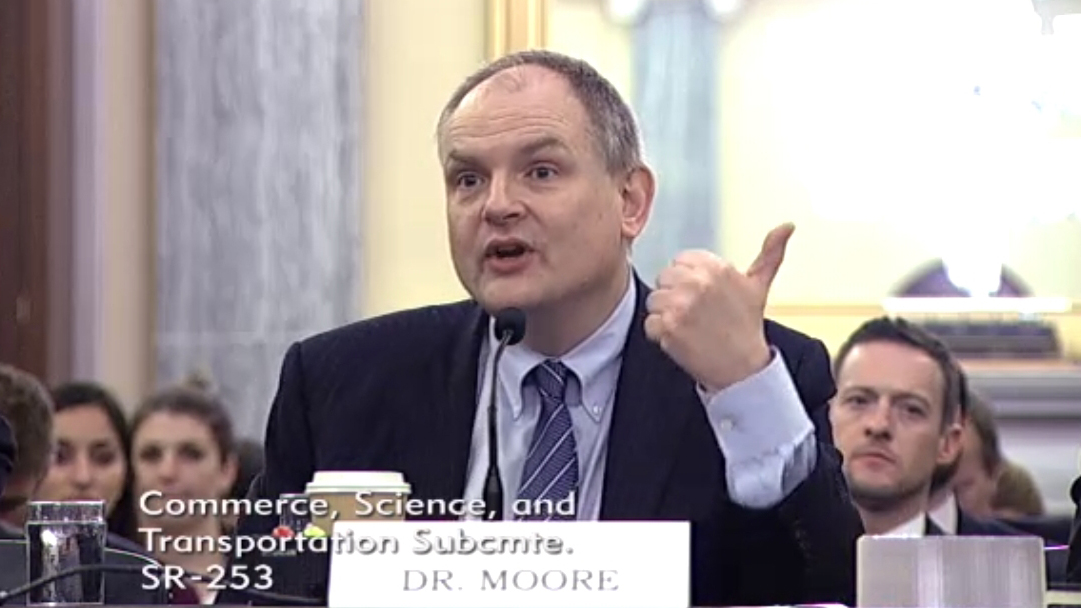SCS Dean Moore Testifies on Artificial Intelligence Before U.S. Senate Subcommittee He Says Nation Needs To Train More AI Experts To Stave Off Global Competitors
Byron SpiceWednesday, November 30, 2016Print this page.

Andrew Moore, dean of Carnegie Mellon University's School of Computer Science, told the U.S. Senate today that the nation should be preparing a million of today's high school students to join a growing artificial intelligence industry.
In testimony before the Subcommittee on Space, Science and Competitiveness of the Senate Committee on Commerce, Science and Transportation, Moore said that such dramatic increases in the number of AI experts will be essential to meet the growing demands of industry and to maintain global competitiveness.
"Based upon my experience, a computer science grad with expert-level AI training adds between $5 and $10 million to the bottom line of a company," said Moore, who was previously a vice president at Google responsible for machine learning technology. "There are major bidding wars for these few individuals."
In addition to producing far more new graduates who are experts in AI, existing technologists should be retrained so that they, too, are up to speed on AI, he said. A larger AI workforce would not only benefit industry, but would increase the number of AI experts available to address governmental needs, ranging from improved Veterans Affairs hospital care to better protective systems for warfighters.
"Because of the talent wars, more and more professors are moving into industry and I am becoming worried that the production of young AI experts in the country will stall, as will innovation," Moore said. He recommended new federal research strategies that encourage professors in AI to circulate between academia and industry throughout their careers.
Expansion of AI need not come at the expense of other workers, he emphasized.
"We strongly encourage the growth of technologies that help us accomplish more in our jobs rather than eliminating those jobs," he concluded.
Moore's remarks were part of a subcommittee hearing on "The Dawn of Artificial Intelligence." The hearing was intended as a broad overview of the state of AI, including policy implications and effects on commerce. Earlier this fall, the White House Office of Science and Technology Policy released a report, "Preparing for the Future of Artificial Intelligence," which was based in part on a series of workshops this year. Carnegie Mellon hosted one of those workshops, "Safety and Control for Artificial Intelligence," on June 28.
Carnegie Mellon has been a leader in artificial intelligence for more than 60 years, with major ongoing programs in machine learning, natural language processing, computer vision, question answering and associated fields.
Byron Spice | 412-268-9068 | bspice@cs.cmu.edu
